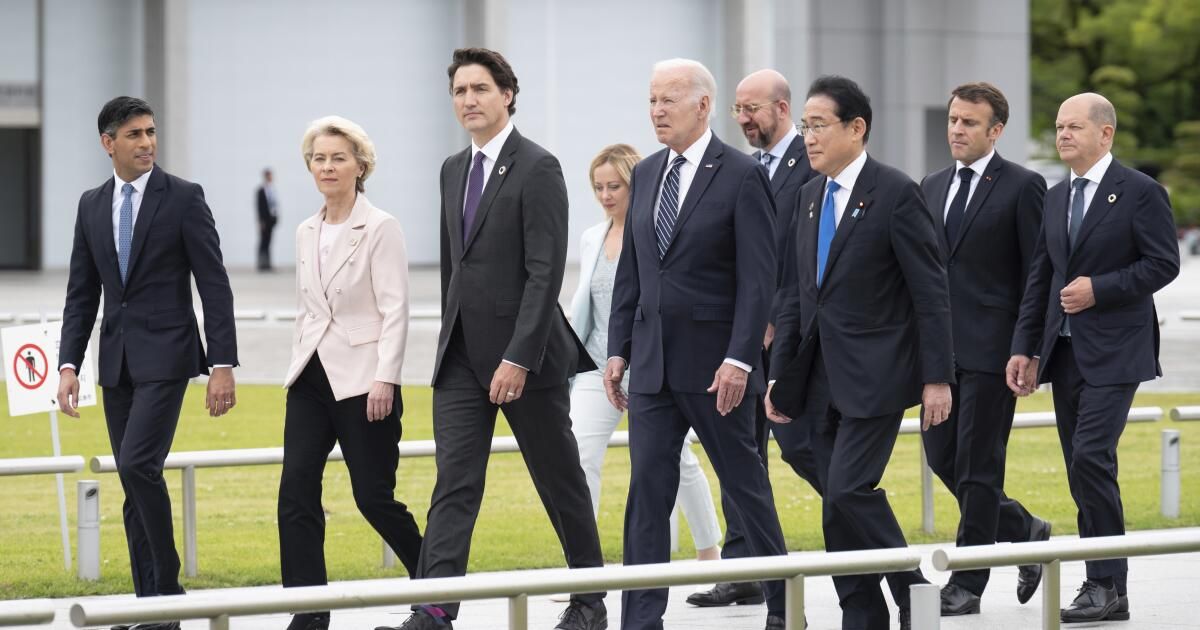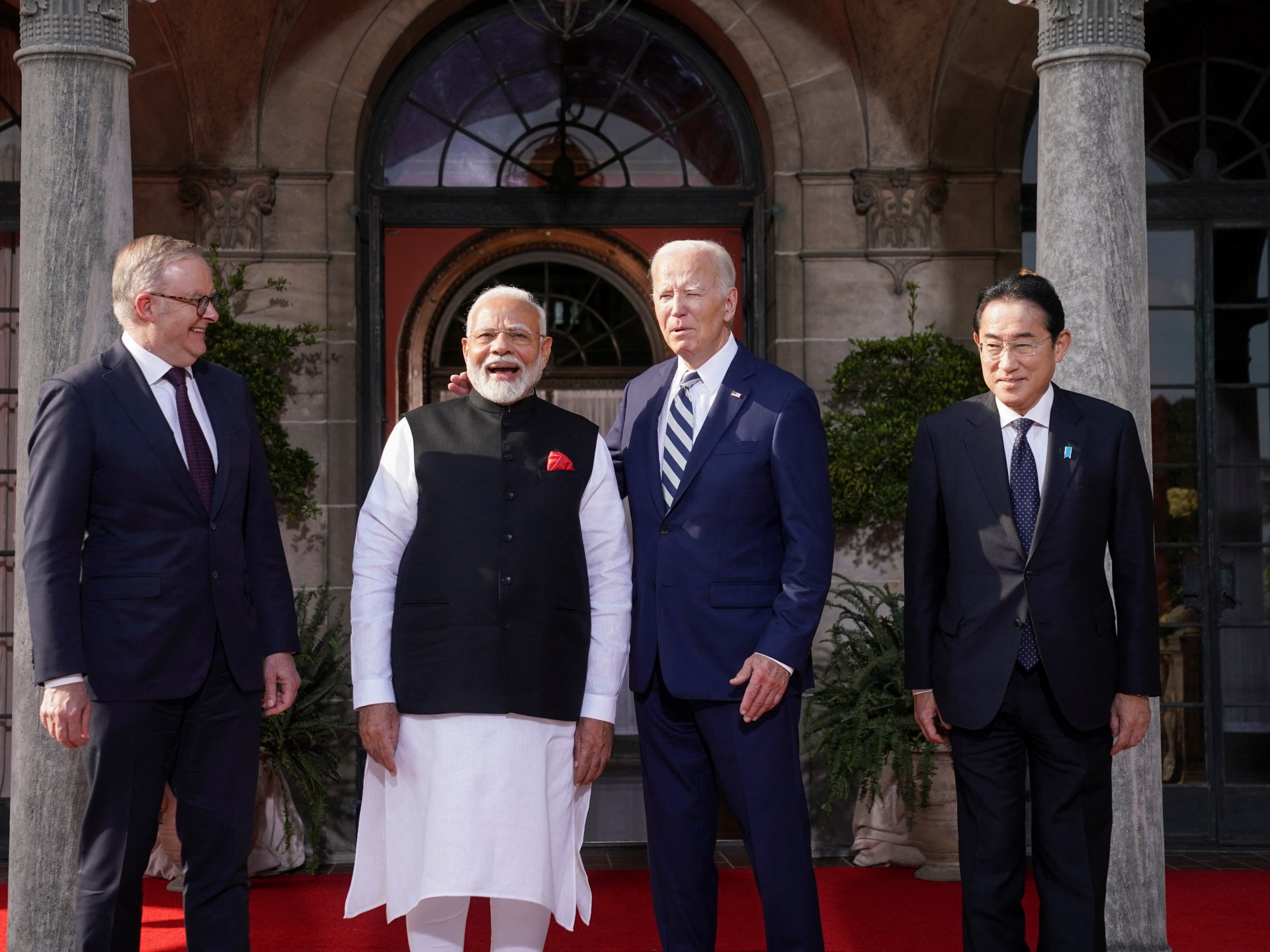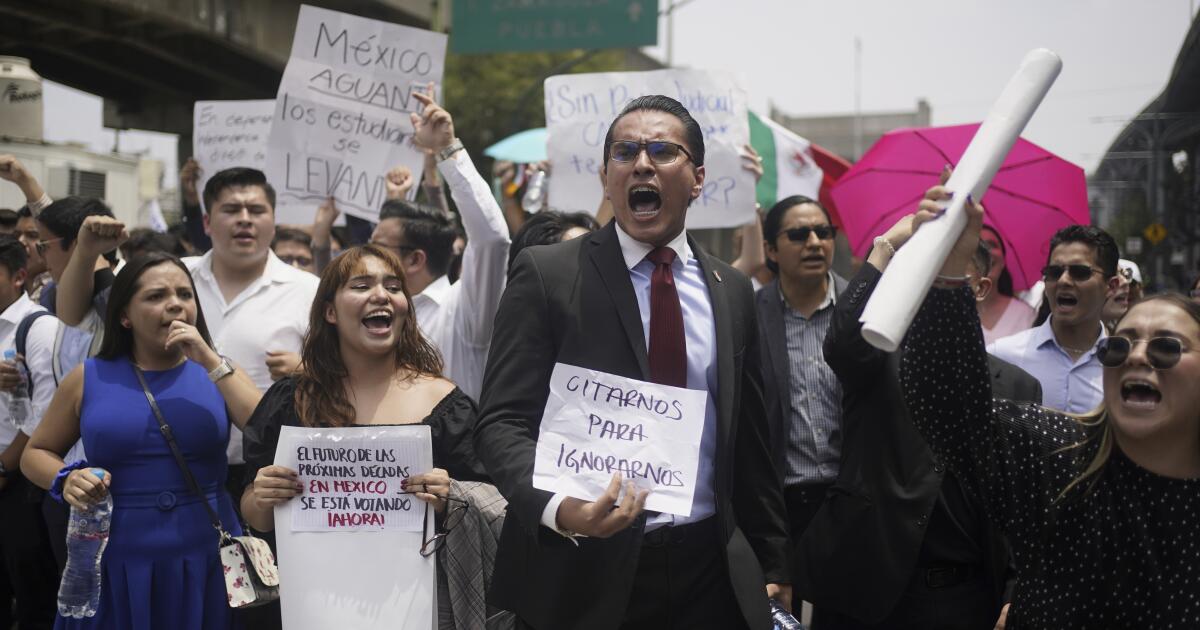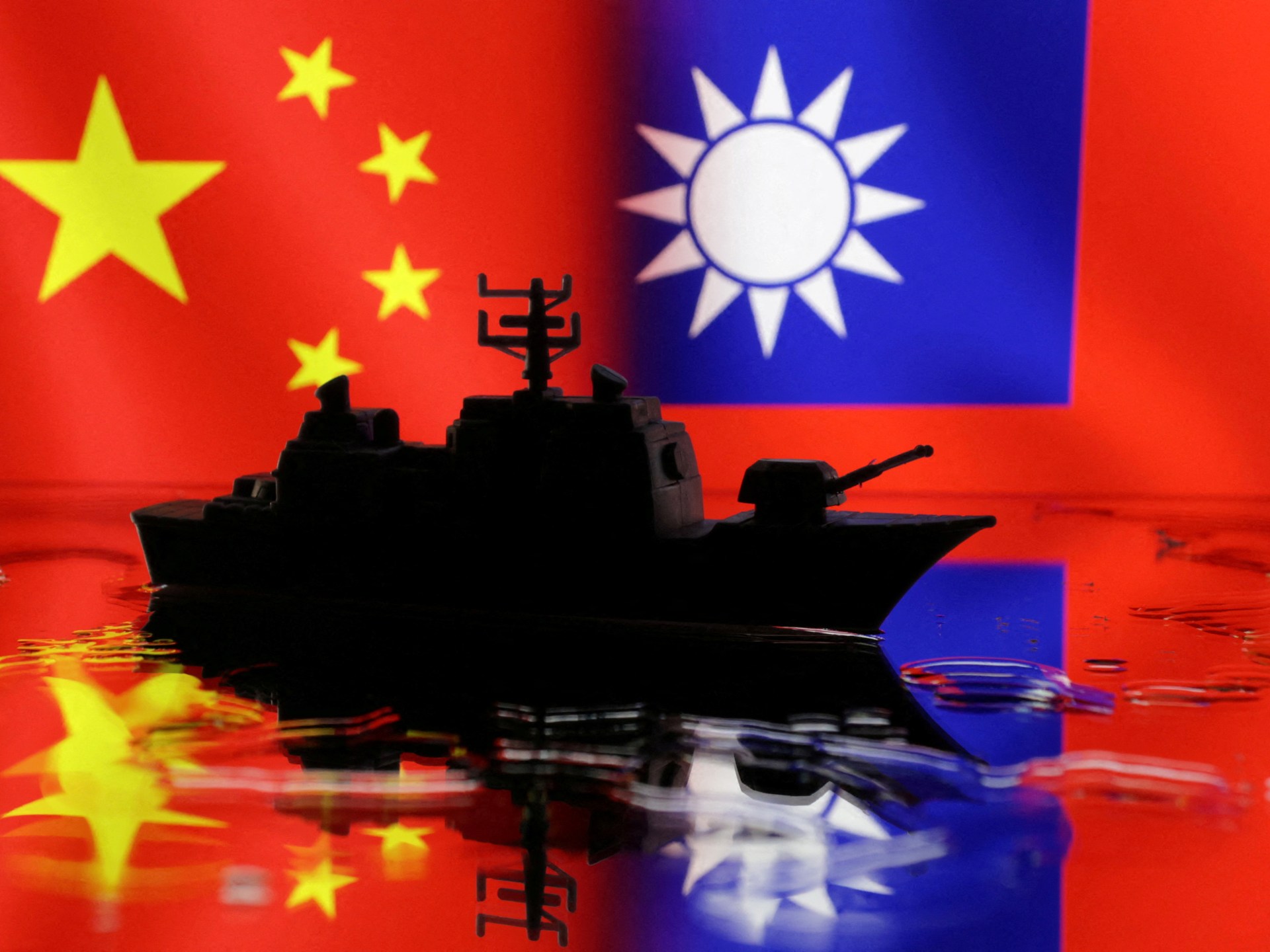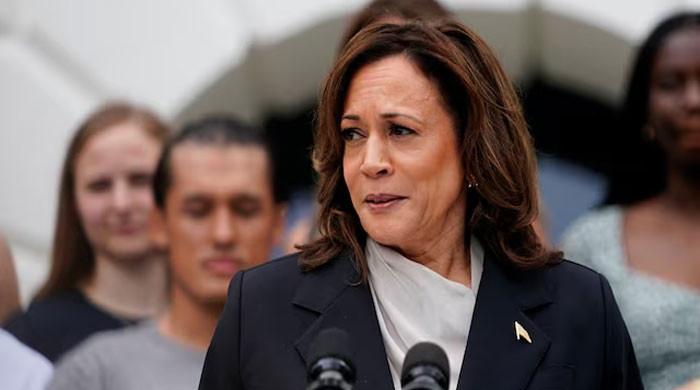Not long ago, leaders of major democracies generally refrained from making political comments that might be seen as meddling in the internal affairs of others.
But the current US presidential campaign has been so eventful that it has been difficult for both friends and rivals to remain completely above the rhetoric.
The latest bombshell — President Biden’s withdrawal from the presidential race — prompted quiet relief among Washington’s closest allies in Europe, some of whom had been privately worried about whether Biden’s age and frailty raised the prospect of another re-election for Donald Trump.
Yet from Europe and beyond, the outpouring of respect that greeted Biden’s announcement was carefully calibrated to avoid suggesting that the Democratic incumbent would have faced a potentially humiliating loss had he not withdrawn.
Many stressed that the president’s withdrawal from the race was due to a spirit of political self-sacrifice. Australian Prime Minister Anthony Albanese told reporters that Biden deserved credit for “not putting himself first, but prioritizing what he believes is in the interest of the United States of America, as he has done throughout his public life.”
Australian Prime Minister Anthony Albanese, pictured at a 2023 state dinner with President Biden, praised the president's decision to drop out of the race.
(Evan Vucci/Associated Press)
Some leaders, intentionally or not, pushed back on Republican talking points that quickly emerged, such as the claim by some high-profile Trump supporters that if Biden was not prepared to campaign, he should not complete his full term in the White House either.
British Prime Minister Keir Starmer, who took office two weeks ago, said on X: “I look forward to working together for the rest of his presidency.”
While praising the US president’s political ability, European leaders tactfully avoided any public reference to what had become a fierce battle among Democrats over whether Biden should step down. German Chancellor Olaf Sholz, striking a tone similar to other allied leaders on the continent, praised “my friend Joe Biden” for his achievements.
“His decision not to run again deserves respect,” Sholz wrote in X.
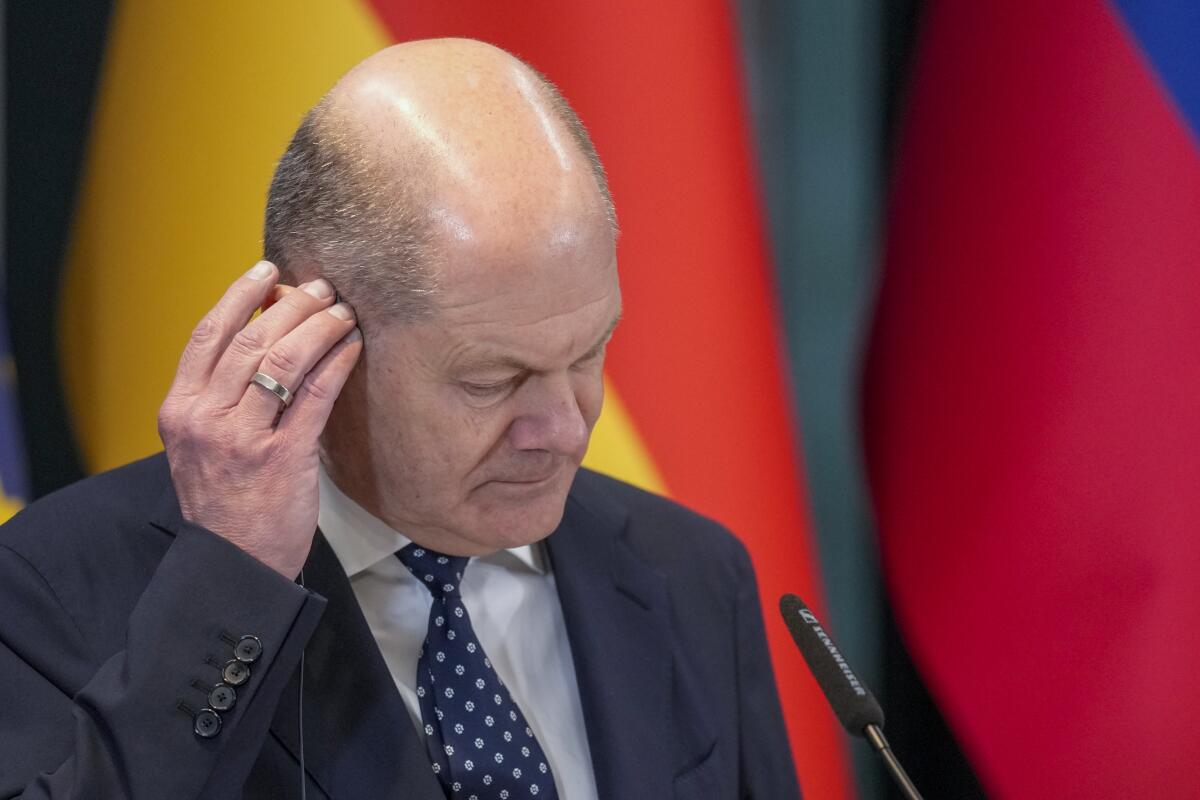
German Chancellor Olaf Sholz, pictured in March, praised “my friend Joe Biden” for his achievements.
(Darko Bandic/Associated Press)
European leaders fear that a second Trump presidency would be overly transactional – “a quid pro quo style of government,” as Laura von Daniels, director of the US research division at the German Institute for International and Security Affairs, put it – rather than reflecting shared values.
“So there is a sense of relief, because it has become increasingly obvious that the Democrats have less and less chance of winning the race,” he said.
But Von Daniels added that there was a growing acceptance that, regardless of who wins the US election, Europe would need to take more responsibility for its own security.
By coincidence, the president’s withdrawal came hours before European Union foreign ministers were set to gather in Brussels on Monday for a previously planned meeting. The talks were expected to be dominated by issues such as the Middle East and the war in Ukraine, but offered top diplomats a chance to confer with each other on the dramatically recalibrated U.S. presidential race.
Biden’s withdrawal was likely seen as a real loss by European leaders, who view Biden as the “last of the old generation of classical transatlanticists,” said Richard Youngs, a senior fellow at Carnegie Europe’s democracy, conflict and governance program.
Trump's stated disdain for the NATO alliance rattled European leaders while he was in office, and those fears have grown amid his resurgent candidacy.
But even for those who believe Biden's decision will help Democrats defeat Trump in November, Youngs said, “for Europe this is also an uncertain turning of the page.”

Ukrainian President Volodymyr Zelensky, with President Biden in Kyiv in 2023, expressed gratitude for Biden's support.
(Evan Vucci/Associated Press)
Some of the warmest praise for Biden came from those for whom U.S. support has literally been a matter of life and death. Ukrainian President Volodymyr Zelensky said Biden had “supported our country during the most dramatic moment.”
In recent days, the global reaction to recent developments in the US campaign, even the most shocking, has largely followed a conventional script, such as the near-universal condemnation in response to the July 13 assassination attempt on Trump.
As in the United States, global expressions of sympathy and relief that Trump was not seriously injured came from across the political spectrum, along with warnings that political violence is never acceptable.
On the campaign trail, Trump routinely praised autocratic leaders, and after the assassination attempt, some far-right supporters outside the United States rejoiced at the idea that the assassination attempt appeared to have strengthened the former president's hand.
After the attempt, for example, Geert Wilders, leader of a far-right party in the Netherlands, posted a photo of the Republican standard-bearer, bloodied and with his fist raised, with a simple hashtag: “President Trump.”
Now that the extent of that apparent push is in question, some of those same figures greeted Biden's announcement with veiled and not-so-veiled ridicule.
Nigel Farage, who won a British parliamentary seat this month when his far-right, anti-immigration Reform UK party won about 15% of the vote nationally, said it mattered little who Democrats put forward as Biden's replacement.
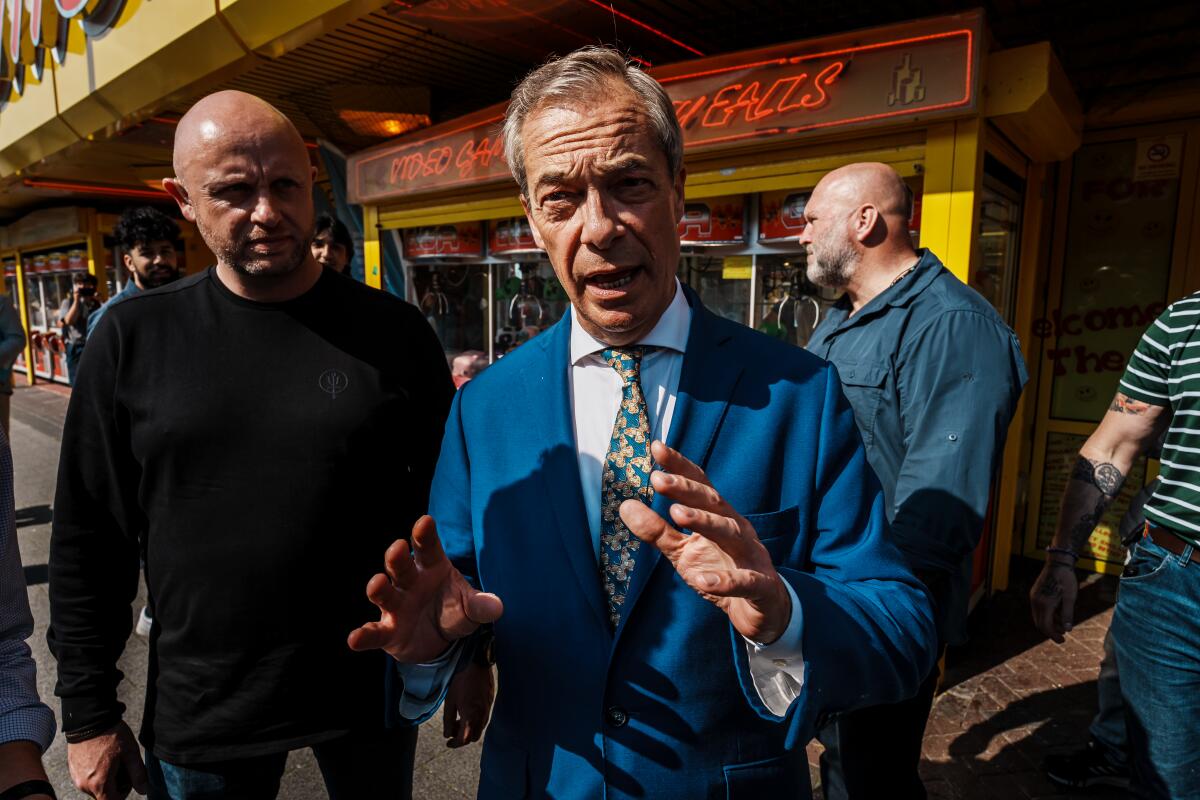
Far-right British politician Nigel Farage, pictured in June, expressed his support for former President Trump.
(Marcus Yam/Los Angeles Times)
“Whoever they choose, Trump will win in November,” Farage wrote in X.
Biden endorsed Vice President Kamala Harris, and the party appeared to unite around her.
From Moscow, Foreign Ministry spokeswoman Maria Zakharova reflected on the Telegram messaging app on a “previous collusion between the American media and political circles to cover up the truth about [Biden’s] mental condition.”
Moscow has made well-documented efforts to influence elections in Europe and the United States, but on Monday Kremlin spokesman Dmitry Peskov sought to strike a note of global indifference about the state of American politics.
“In recent years, what has happened in the United States has taught us not to be surprised by anything,” Peskov told reporters. “This issue should concern American voters, but not us.”
Others who have openly allied themselves with Trump were left in an awkward limbo by weeks of uncertainty over whether Biden would heed growing calls to drop out of the race.
News that Biden had dropped his re-election bid came just as Israeli Prime Minister Benjamin Netanyahu was about to embark on what had been predicted to be a contentious visit to Washington when the news broke.

Israeli Prime Minister Benjamin Netanyahu, who will be with President Biden in October, will travel to Washington this week for another meeting with the president.
(Evan Vucci/Associated Press)
Since the start of Israel’s nine-month war with the Palestinian militant group Hamas, Netanyahu has repeatedly clashed with the Biden administration over humanitarian aid to Gaza and measures to protect Palestinian civilians, but analysts say Biden’s standing among young people and Arab-American voters has nonetheless been hurt by his staunch support for Israel.
Though Netanyahu’s political rivals at home responded to Biden’s withdrawal with heartfelt thanks for his support, the prime minister was initially silent — recalling, perhaps, Trump’s long-standing grudge against him for offering pro forma congratulations to Biden for winning the 2020 election, the outcome of which Trump continues to question.
But on Monday, apparently bowing to political etiquette as he prepared to depart Tel Aviv’s Ben Gurion Airport, Netanyahu said his trip was an opportunity to thank Biden “for the things he did for the state of Israel, both in the war and during his years of service as a senator, as vice president and as president.”

